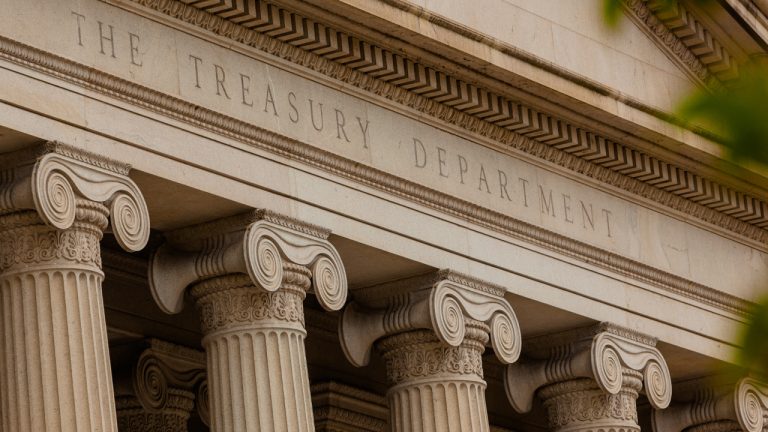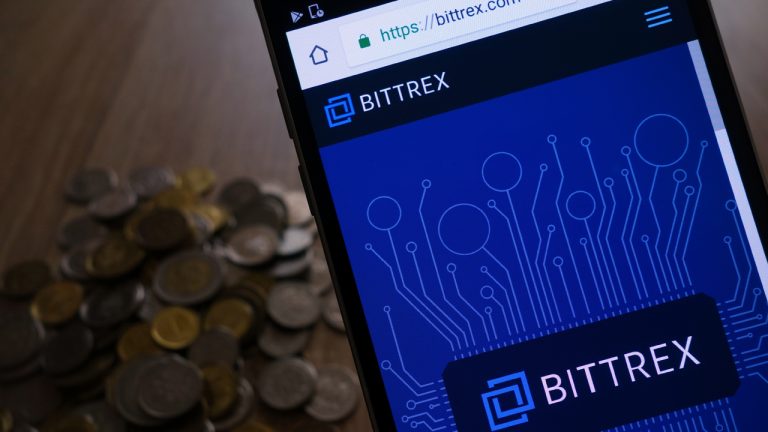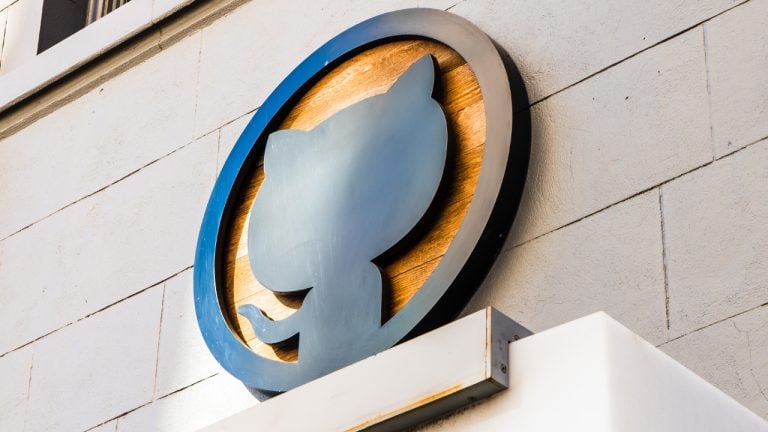
A cryptocurrency-focused advocacy group is challenging the validity of the US sanction against crypto mixing service Tornado Cash. On August 8th, the U.S. Treasury Department’s Office of Foreign Assets Control (OFAC) imposed a ban on Tornado Cash citing that the protocol is used in illicit activities such as money laundering and terrorism. The non-profit group […]
The post Office of Foreign Assets Control Sued by Crypto Think Tank Over Tornado Cash Bans appeared first on The Daily Hodl.
 The non-profit that focuses on policy issues facing cryptocurrencies, Coin Center, has filed a lawsuit against the Treasury department, the secretary of the Treasury Janet Yellen, and the Office of Foreign Assets Control’s (OFAC) director Andrea Gacki. Coin Center’s court filing says that the government’s sanctioning of Tornado Cash exceeds the Treasury’s statutory authority. The […]
The non-profit that focuses on policy issues facing cryptocurrencies, Coin Center, has filed a lawsuit against the Treasury department, the secretary of the Treasury Janet Yellen, and the Office of Foreign Assets Control’s (OFAC) director Andrea Gacki. Coin Center’s court filing says that the government’s sanctioning of Tornado Cash exceeds the Treasury’s statutory authority. The […] On October 11, the U.S. Treasury department’s Financial Crimes Enforcement Network (FinCEN) and the Office of Foreign Assets Control (OFAC) announced that it has settled charges with the cryptocurrency exchange Bittrex. The crypto exchange was accused of sanctions violations and failure to “implement effective sanctions compliance controls” between March 2014 and December 2017. Crypto Exchange […]
On October 11, the U.S. Treasury department’s Financial Crimes Enforcement Network (FinCEN) and the Office of Foreign Assets Control (OFAC) announced that it has settled charges with the cryptocurrency exchange Bittrex. The crypto exchange was accused of sanctions violations and failure to “implement effective sanctions compliance controls” between March 2014 and December 2017. Crypto Exchange […]
Labrys CEO Lachlan Feeney is trying to raise awareness among validators running Flashbots’ software that they may potentially be contributing to censorship within the Ethereum network.
According to the CEO of blockchain development agency Labrys, Lachan Feeney, approximately 45% of all Ethereum blocks currently being validated run MEV-boost relay flashbots and comply with United States sanctions.
Speaking to Cointelegraph in an interview on Sept. 30, Feeney noted that while reports have stated that 25% of all blocks validated since the Merge complies with United States sanctions, this is a lagging indicator and the current number is likely to be closer to one out of every two blocks.
Feeney pointed out that MEV-Boost relays are regulated businesses, often U.S.-based, and are “censoring certain transactions in the blocks that they build, particularly transactions from Tornado Cash.”
The CEO also pointed out validators have a financial incentive to use MEV-Boost relays, which would drive an uptick in their usage, noting:
“The issue, is that from the validators perspective, these guys are paying them to sort of do this. So if you want to make more money, you just turn this feature on and as a validator, you sort of boost your yield.”
MEV-Boost relays are centralized entities dedicated to efficient Maximal Extractable Value (MEV) extraction. With Flashbots being the most popular, MEV-Boost relays effectively allow validators to outsource block production and sell the right to build a block to the highest bidder.
Labrys released an MEV Watch tool on Sept. 28, which can inform validators about which MEV-Boost relays comply with Office of Foreign Assets Control (OFAC) sanctions. Referring to the motivation behind the tool, Feeney said:
“We’re just trying to raise some awareness for those who are unaware that by running this software, they are potentially contributing to censorship of the network.”
Feeney noted a worst-case situation often referred to as hard censorship, where “nodes would be forced by regulation to basically discard any blocks with any of these transactions in them.”
“That would mean no matter how long you waited, no matter how much you paid, you would never get to a point where those sanctioned transactions would get included in the blockchain,” he explained.
He also pointed out that even in the event of soft censorship, where sanctioned transactions would eventually be validated, it could take hours and require a high priority fee, resulting in a sub-par user experience.
Related: MEV bot earns $1M but loses everything to a hacker an hour later
These findings are reinforced by Ethereum researcher Toni Wahrstätter, who published research on Sept. 28 suggesting that of the 19,436 blocks verified by the Flashbots Mev-Boost Relay, none included a Tornado cash transaction.

Censorship fears were prevalent before The Merge. Speaking to Cointelegraph, the lead investigator for crypto compliance and forensic firm Merkle Science, Coby Moran, suggested the prohibitive cost of becoming a validator could result in the consolidation of validator nodes to the bigger crypto firms — who are much more susceptible to being influenced by government sanctions.
 The internet hosting and software development subsidiary of Microsoft, Github, has partially unbanned the Tornado Cash repositories following the recent sanctions enforced by the U.S. Treasury Department’s Office of Foreign Asset Control (OFAC). Github’s decision follows the U.S. Treasury updating the public, noting that U.S. persons can copy, view, and discuss the open-source code. Github’s […]
The internet hosting and software development subsidiary of Microsoft, Github, has partially unbanned the Tornado Cash repositories following the recent sanctions enforced by the U.S. Treasury Department’s Office of Foreign Asset Control (OFAC). Github’s decision follows the U.S. Treasury updating the public, noting that U.S. persons can copy, view, and discuss the open-source code. Github’s […]
There’s a hole to be filled where Tornado Cash once was, and “junior mixers” are vying for position in the wake of the mixers sanction and ban by the U.S. Treasury.
The sanctions on cryptocurrency mixer Tornado Cash has left a vacuum for illicit fund mixing services, but more time is needed before we’ll know the full impact, according to Chainalysis’ chief scientist.
During a demo of Chainalysis’ recently launched blockchain analysis platform Storyline, Cointelegraph asked Chainalysis chief scientist Jacon Illum and country manager for Australia and New Zealand Todd Lenfield about the impact of the Tornado Cash ban.
Illum said whilst there is still some usage of the mixer, more time was needed to “see what's happening” and how the ”world responds to that designation,” adding that people are trying to figure out what to do now the crypto mixer is effectively gone:
“People are getting more cautious in the space and are not sure how to interact with Tornado Cash, we've seen deposits into services providing similar activity go down at least temporarily, because people are measuring like ‘what does this mean for me?’”
But, where others see obstacles, some are clearly seeing opportunity, Illum noted a crop of what he calls “junior mixers” have popped up looking to cash in on the void that Tornado Cash left.
An August report by blockchain security firm SlowMist stated 74.6% of stolen funds on the Ethereum (ETH) network were transferred to Tornado Cash in the first half of 2022, a sum of over 300,000 ETH, around $380 million.
Data from Chainalysis showed the 30-day moving average of the total daily value received by crypto mixers reached a new all-time high of $51.8 million in April.
“If the liquidity isn't there, you effectively dry up a lot of [a mixers] capability,” Lenfield added.
“The hunting for places where there is liquidity, when it's highly visible after things like the OFAC sanctioning of Tornado Cash, I think makes a very interesting space to keep an eye on.”
Tornado cash was sanctioned by the United States Treasury Department on Aug. 8 meaning criminal or civil penalties could be brought against U.S. citizens or entities who interact with the mixer. Over 40 cryptocurrency addresses purportedly connected to Tornado Cash were added to the Specially Designated Nationals list of the Office of Foreign Asset Control (OFAC).
Related: Tornado Cash is the latest chapter in the war against encryption
Asked about the level of sophistication that law enforcement agencies had in dealing with crypto related crime, Illum mentioned one of the biggest gaps in law enforcement at the moment is blockchain-related training.
“As [blockchain] gains adoption, there's more people that are getting exposure to crypto, which also means that there are more agents or law enforcement personnel that need to have exposure to crypto as well.”
Lenfield noted that authorities are starting to build capabilities around cryptocurrencies, citing the Australian Federal Police’s (AFP) recent establishment of a cryptocurrency unit focused on monitoring crypto transactions.
“It is active in their minds, they are setting goals, and they're working through that…but as in any aspect, there's that learning curve to get them there, but there is 100% visibility and development in this space by those agencies.”
Earlier in September, Chainalysis Crypto Incident Response team helped law enforcement recover $30 million in crypto stolen in the Ronin Bridge hack by the North Korean linked Lazarus Group who used Tornado Cash to launder stolen assets.

The U.S. Treasury Department is asking the public for their opinions on how to handle the potential risks of crypto assets. In a newly published document, the Treasury Department is asking the general population how they feel about the illicit use of crypto assets and what steps can be taken to curb them. The Department […]
The post U.S. Treasury Department Asks for Public Opinion on Potential Risks of Digital Assets appeared first on The Daily Hodl.

The U.S Treasury Department’s Office of Foreign Assets Control (OFAC) is imposing a ban on five crypto addresses linked to a Russian neo-Nazi paramilitary group. The group known as Task Force Rusich was added to OFAC’s Specially Designated Nationals and Blocked Persons List (SDN) along with 22 individuals and entities for facilitating the geopolitical conflict […]
The post Office of Foreign Assets Control (OFAC) Targets Russian Paramilitary Group With Crypto Sanctions appeared first on The Daily Hodl.

The U.S Treasury Department’s Office of Foreign Assets Control (OFAC) is taking action against a ransomware group targeting individuals and companies in the United States by adding associated persons and their properties to the Specially Designated Nationals and Blocked Persons List (SDN). In a statement, the Treasury Department says that it is sanctioning the ransomware […]
The post U.S. Treasury Department Sanctions Bitcoin (BTC) Addresses Linked to Ransomware appeared first on The Daily Hodl.